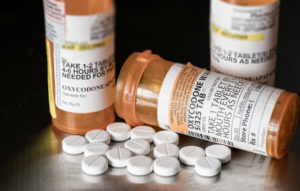The Colorado Assembly just passed a new bi-partisan bill to allow Colorado residents to choose cannabis over pharmaceutical drugs. Senate Bill 13 is a massive success for cannabis, but a blow for big pharma.
The issue when it comes to opioids is that many people who take them for pain at first end up getting addicted, and when the pills run out, they turn to heroin. Heroin has similar effects to opiates but it’s often stronger, cheaper, and easier to find, and that’s why people use it.

Opioid addiction takes an average of 130 lives every day in the U.S.
But there are other options, and cannabis is one of them. Cannabis can have heavily sedative effects if used in specific ways. Due to the new bill in Colorado, patients suffering from a range of conditions, including Opioid addiction, will have the option of choosing medical cannabis as a natural alternative treatment.
According to the wording of the new act, “Concerning the conditions for medical marijuana use for disabling medical conditions, and, in connection therewith, adding a condition for which a physician could prescribe an opioid to the list of disabling medical conditions for medical marijuana use.”
Furthermore, the bill adds that “Under current law, a child under 18 years of age who wants to be added to the medical marijuana registry for a disabling medical condition must be diagnosed as having a disabling medical condition by 2 physicians, one of whom must be a board-certified pediatrician, a board-certified family physician, or a board-certified child and adolescent psychiatrist.” This means that patients need to go through a lenghty process to get medical cannabis.
This new bill is being looked at carefully by the relevant authorities in other states and across the world. In this day and age, many people do not want to be given opioids in the first place, but their condition becomes so debilitating that they have no other choice. So many folks successfully incorporate medical cannabis and CBD into their daily routine, and as it’s natural and non-addictive, they avoid all those nasty side-effects.
Senate Bill 13 puts into law a new precedent that will most likely be adopted across North America if current trends are anything to go by. Soon enough, people everywhere will be asking if there’s a viable alternative to those prescription medications, especially for teens and young adults.









